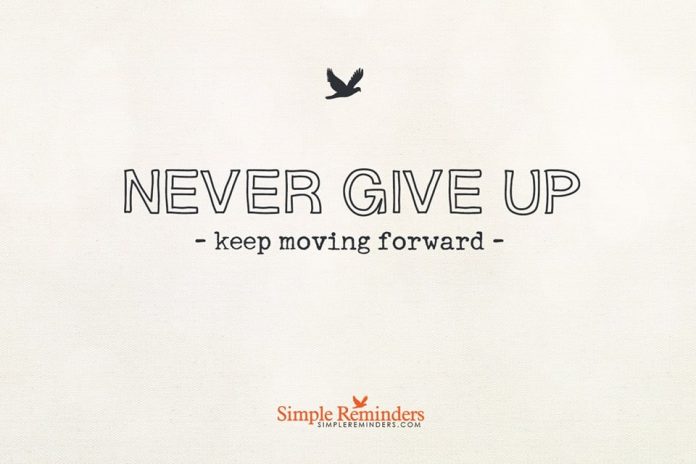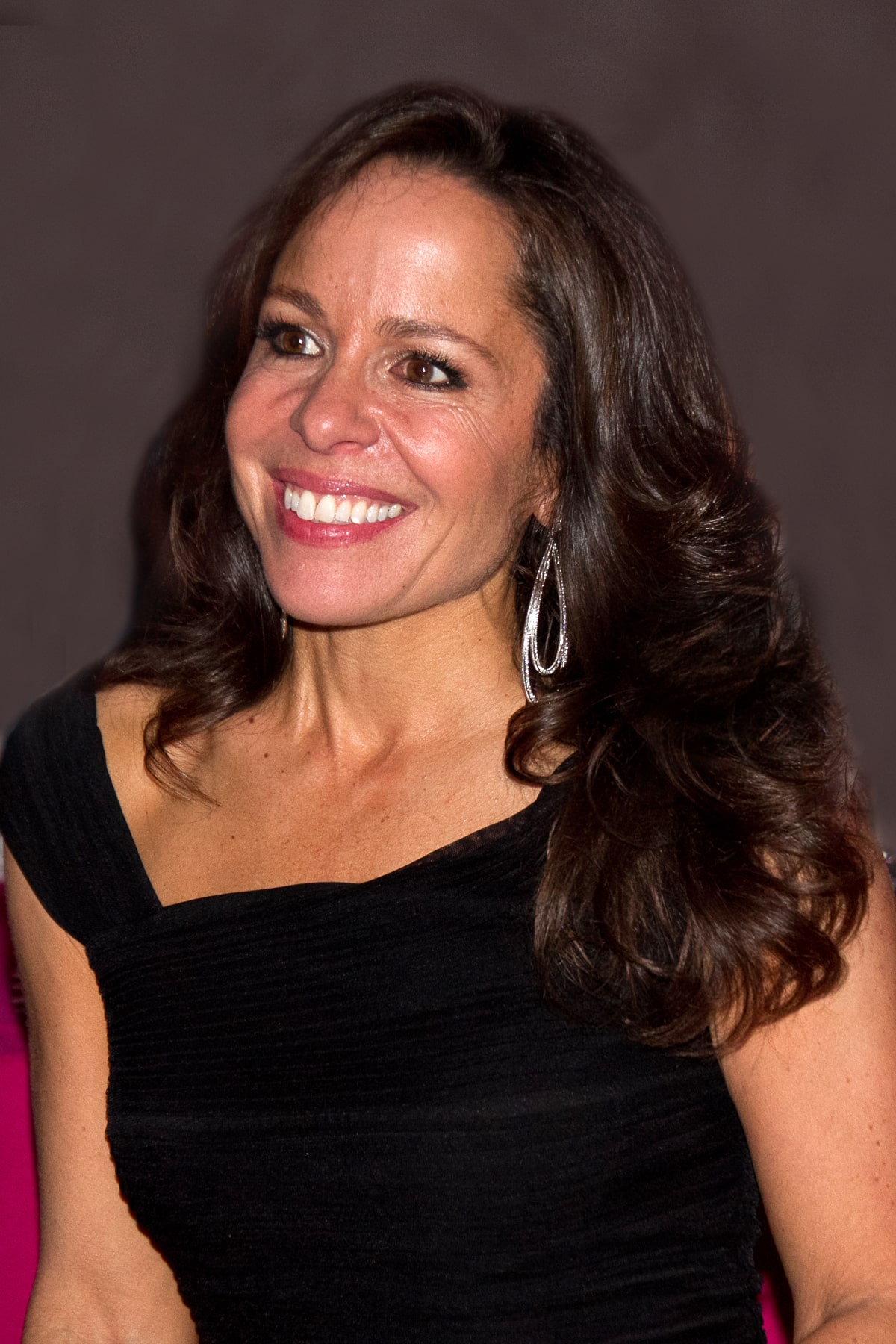By Lisa Barr.
From Tragedy to Triumph: 34 years after recovering from Anorexia Nervosa, I went back to the scene of my childhood trauma.
Have you ever done something not because you want to but because you have to? Because “closure” is required. I wonder, can you ever really put a lid on childhood trauma?
They say you can never go back, be it a relationship, an unforgettable experience, or any place that holds too many strong memories. It is never the same, because you are not the same. I think about this as I approach the elevator leading to the Eating Disorders Unit of a prominent Chicago hospital. It has been 34 years since I have been back to what I remember as the “gateway to hell” — where I was once a patient, at just shy of 13 years old, barely 45 pounds and starving myself to death.
Of course I am going to feel different, I tell myself. I am now healthy, thriving, with three beautiful daughters; a life filled with blessings: a wonderful husband, financial security, great friends, and time for myself. Why am I suddenly terrified? Why did I decide to revisit my childhood nightmare?
I don’t have to do this.
But you do, that tiny voice inside me whispers. It’s time to face what was, and give back. By giving back, I am on my way to share my survival “story” with a group of young patients in the hospital who are suffering from Anorexia Nervosa and Bulimia. I had gone through a rigorous process to volunteer in this special hospital unit, and tonight would be my debut.
I check my watch. Ten minutes until curtain time. I veer off to the closest bathroom, throw water on my face and look in the mirror. “God, I think I need a little help here,” I whisper. “I feel like 47 going on 13 again. I’m scared.”
Will they know that the pain behind my eyes once matched theirs? Will they know that I once kept my pants up with staples? Damn, I’m not just scared – I’m terrified of exposing myself. Just stick with the plan, a voice seems to echo from somewhere above.
The plan went something like this: My daughters who are now independent no longer needed me in the same minute-by- minute way, and I suddenly had some time between writing, Starbucks and yoga. I wanted to do something fulfilling with my life. Several women friends had asked me to volunteer for various charities, but I knew there was only one area in which I could truly make an impact: Anorexia Nervosa – my own childhood trauma.
It all began when I was 12 years old. I was a straight-A student and considered one of the most popular girls in my class, but hiding a life of hell at home. My parents were on the verge of a divorce, and within the first six months of seventh grade I had starved myself, losing thirty pounds off an already slim frame, and exercising away food I had never eaten – working myself up to as many as 1000 sit-ups/500 push-ups plus jogging and aerobics on a daily basis. No one, including me, knew what had taken hold of my body and mind. I just knew that I could not stop.
At that time, Anorexia Nervosa was still in the closet and not yet an integral part of Pop Culture, and my parents had to write to the Library of Congress for more information. My friends were terrified of the “It” girl disappearing before their eyes, and they stayed far away from me — except for one friend — Rebecca, who to this day, will always be in my heart for saving my life. I was so young, and so alone in my pain. My three younger siblings idolized me, but they would cry themselves to sleep, thinking that their big sister would soon leave them, and they didn’t know why. My parents did not explain my illness to them. They thought if they did not talk about it — it would somehow go away.
When I could no longer stand because I was so weak, I was hospitalized. I had become a threat to my own life. At the time, there were no support groups, no celebrities discussing their “secret” bouts with eating disorders.
When I was admitted to the hospital, it was only Me vs. Me, sentenced to solitary confinement.
As I now walk down the same carpeted corridor, a woman and no longer a child, I think to myself: How I once hated this place, and especially the “mean” nurses who had monitored me around the clock. Those mean nurses saved my life, but back then they were, of course, the enemy.
When I finally gained weight through intensive therapy, and got back to “normal,” there were a few important women in my life who later deteriorated from eating disorders including my friend Emily, my mentor on my high school cheerleading squad, who died at age 30 from complications related to Anorexia Nervosa. My close friend in college I discovered was bulimic when she passed out in the dressing room of a clothes store from dehydration (too much vomiting). And NOW, most importantly, there are my “Mini Me’s” to consider – my three daughters, ages 15, 13, and 12. When they ask (as most daughters at some point ask their mothers): Do you think I’m fat, Mommy? I literally feel panic shoot throughout my entire body.
Never again.
Girls, especially in this day and age of instant media blitz, need to know that they are good enough. Everything in our society tells them otherwise. I knew I had to do something. And do it now. I contacted the hospital and asked to volunteer, to share my survival story with their patients, hoping it would give them “hope.” They responded that I would be their first-ever volunteer, but given my special connection to the unit, they were willing to try it.
That was the plan. And now, I think, as I press the elevator button, the plan is about to unfold. Deep, cleansing
breath. Do I look too stylish? I wonder as I head toward the ninth floor. Perhaps I should not have worn these burgundy boots. They are too hip; too I’m-so-put-together. Maybe I won’t be believable. And I’m still slim, but healthy slim – will they hate me? I knew every inch of me was about to be judged by these girls because Anorexia and Bulimia are the most competitive of illnesses.
***
As I slowly enter the room, I stop at the doorway. There are not just the girls inside, but also parents, siblings, friends, and therapists – a room full of people. This is not what I expected. I was counting on just a handful of girls and a couple parents, but now there is an audience. I have given speeches to hundreds on my journalism escapades, but nothing this intimate, and certainly nothing about me – the real inner me. I nearly turn to run out the door, when the head therapist smiles and says, “So glad you could be here, Lisa. Come, join us.”
I smile and nod authoritatively, as if I am about to give a lecture on what it was like to be a reporter in the Middle East. If only …
I sit next to one of the therapists and glance around the room, examining face after face, when suddenly I feel the rising lump in my throat: Their parents all came to support them – where were mine when I needed them? Their siblings were all here – why was I not allowed to talk to my siblings about my illness? The loneliness of the child within began to surface, until it became the pink elephant in the room, separating me from all of them. Tears fill my eyes. You are a mother now, I remind myself – a wonderful loving mother! You eat and exercise normally. Food is no longer the enemy. You survived this, and so much more. You are just a visitor tonight. Don’t forget that.
Don’t. Forget. Who. You. Are. Now.
There it is. The epiphany. I separate each word in my head and repeat them, not hearing the therapist introduce me and give a bit of my background as a journalist. The room falls silent. I’m on.
At first all I could manage to say was, “Look to your right, look to your left – parents, grandparents, siblings, and friends.
They are here. They showed up for you. You are not alone. It is half the battle …” My voice trembles as I clear my throat, still fighting the tears as I proceed to tell my story for the next half hour.
“How long did it really take you to get better?” asks a mother of a 14-year-old girl suffering from Anorexia, during the Q & A part of the discussion.
“I was so young,” I say slowly, knowing that many of these girls have been suffering for years with eating disorders. “No one had any information back then. It took two years for me to gain and retain a normal weight.” Pause. Breathe. “The truth is, it took me another ten years to come to peace with food in my head and not obsess.” I gaze at the girls looking intently at me. “The thoughts in your head are a full-time 24/7 job. I know it’s exhausting.”
“Have you ever relapsed?” asks a girl in her late teens. Bulimic.
“No,” I answer proudly, but quickly remember that everything I say will be weighed heavily. They will compare themselves to me. “I have not relapsed in the way of weight loss and compulsive exercising. But yes when it comes to feelings of safety, abandonment and fears. Those don’t go away for me. Ever. I deal with those triggers every single day of my life.”
“Do you take medication?” one father asks.
Be careful, I warn myself. Many of these girls are medicated.
“No,” I answer slowly. “I hate pills. Can’t take them. Though I know that they probably would have helped me a lot.”
“Do you ever really heal?” one pretty but gaunt teenager asks softly.
Here goes. How do you say no and yes at the same time, and still give these girls hope?
“The one thing I learned,” I say carefully, “is that you will have to deal with the feelings that led to Anorexia and Bulimia your whole life. There will be lots of triggers.”
“What are some of your triggers?” interrupts another girl from the back of the room.
My parents’ divorce, my own divorce, especially that my ex-husband deserted my young daughters and me 10 years ago, never to be seen again. Abandonment. Abandonment. Abandonment. I don’t want to go there, I think anxiously. Instead, I say, “Everyone in this room has her own story, her own triggers. It doesn’t matter. What does matter is learning new coping mechanisms to develop a healthy toolbox so that when things in life hurt you, you have positive ways to manage the pain instead of punishing yourself.”
The room is dead silent, each girl immersed in her own trauma.
“Was it hard having babies?” asks the mother of the 14-year-old. The woman’s face is lined with pain. As a mother, I understand every inch of what she is feeling: helpless.
Three miscarriages. Nine months bed rest to give birth to my eldest daughter. So many complications.
“Yes,” I tell her. “When I was sick, it was right at puberty. I stunted my growth, my breast development, everything ‘woman” inside me fell apart. I had many side effects from malnutrition. But as an adult, I was able to have babies – it wasn’t easy. Even after everything I did to my body as a kid, I have beautiful, healthy children.”
“Do your kids know about your past?” asks a grandmother.
“I have learned not to hide anything.” I look away from Grandma and concentrate on the girls. I want them to hear this: “Anorexia and Bulimia is a world of living in secret and constant deception. I’m open with my daughters and teach them how to make healthy choices for their mind and body. Our society wants our girls to fail because it sells. The one wrong message we all share in this room is this: You are not good enough/pretty enough/thin enough. Or, just enough – and that, girls, is what you need to change inside yourself, the hardest battle of all.”
A college-aged girl with long dark bangs nearly covering her eyes interjects, “So how then do you become enough?”
It is the last question of the night after nearly an hour discussion, and by far, the most difficult. I laugh sadly inside. It has taken me years to get that one under my belt.
“I’m not going to lie to any of you. You are all in this hospital for a serious reason: survival. This is a process, the hardest journey, there is no magic – it is work. Through therapy you will find what you need and learn what you love. You will discover what ‘enough’ means for you.” I add in a whisper, “This is the fight of your life – like I said earlier – your family, your friends, your therapists – they all showed up for you tonight. You joined this group not to be alone in your pain. If I could get to this point after so much struggle on my own, I promise you too can get there with a strong support system.”
The head therapist hugs me when I finish speaking. There is a loud, albeit measured applause. It is bittersweet. This is not a lecture on Middle East politics; it is one of painful internal choices. As I gather my things I can practically hear the girls’ thoughts permeate the dead silence: Will I ever be normal? Will I ever allow my body to get fat and pregnant? Will I survive this ordeal, like she did?
***
As I leave the hospital and head home, I feel tremendously sad, knowing the girls’ journeys will be arduous, filled with many trials and tribulations along the way. I simply gave them a vision of what can be, and hopefully, what will be for them. But it was just a beginning – the middle and the end was up to them. All I could give those girls was perhaps what they needed the most: a ray of hope in a world filled with darkness.
When I arrive home, my whole family is there, waiting for me in the kitchen. My husband takes one look at me and hugs me tightly. He knows. My 13-year-old eyes me closely, “Was it hard to go back there? Was it sad, Mommy?”
Yes, and yes, honey.
To my surprise, it took me a few weeks to come to terms with what happened that night at the hospital. Days were spent looking in the mirror at my healthy body and pondering my healthy life, healthy children, and healthy new marriage. I had to remind myself that I am really okay, that I am enough, and that I’m not that sick young girl anymore.
I came to realize that night was both a reflection of my youth that is still very much a part of me, and a reminder that I am, and probably always will be, a work-in-progress. For those of us who hurt so deeply as kids, no matter the trauma, we get through it, but there are always triggers … always reminders … that while the little girl may have grown up and survived it all, deep inside, she is still there.
And that’s okay. Just mother her, love her, and take care of her, as you would your own child.
Lisa Barr is the author of the award-winning novel “Fugitive Colors”, which has been optioned for movie development by Hollywood producer Arthur Sarkissian (Rush Hour trilogy, While You Were Sleeping). She is also the creator of the popular Mom blog, GIRLilla Warfare (www.girlillawarfare.com). You can reach Lisa: @lisabarr18; www.fugitivecolorsthenovel.com.
All of jen Pastiloff’s upcoming events listed here, including her two Tuscany retreats.





Wow! Thank you so much for authentically sharing your experience, strength and hope!!
You are to be applauded for your selfless bravery. It really was for others suffering that you returned to Hell; and it was a voluntary trip. I’m sure you planted seeds of hope in the girls. You gave them an undistorted mirror into the future.
Wow from me too. Thank you so much for sharing this. I a mother of someone who was anorexic starting in 11th grade. Once it started it snowballed and I thought there would never be any hope and then there was. I know it is always a work in progress and I am proud of her.